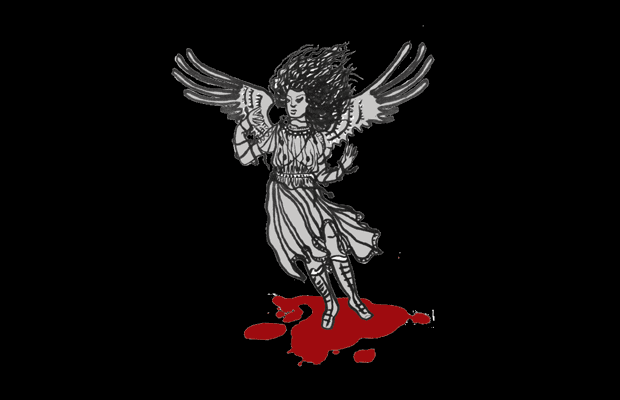History is not a linear progression from bad to better. This is a dangerous assumption, and one that assigns a kind of moral superiority to the present state of things that we frankly haven’t earned.
That said, although much of modern strife has its roots in relatively recent developments (for example colonialism and capitalism), there are also forms of prejudice that can be traced back to deeply ancient ideas. One of these is the concept of miasma.
In ancient Greek, miasma translates to something like ‘stain’ or ‘pollution’. It was thought to be a kind of spiritual contamination arising out of sinful or unnatural acts. Miasma was contagious and would linger and spread unless purified. The perpetrator of the original sinful act would be the worst afflicted, but anyone around them would also be affected—their family, friends, neighbours, and anyone else who came into contact with them. For the most part, miasma was considered a fairly mundane and unavoidable part of life, and multiple daily purification rituals (known as katharsis) were performed to manage its influence.
Birth and death were both powerful pollutants, but there were many other lesser sources of miasma, such as sex, blood, blasphemy, and violations of xenia (hospitality). Moral crimes occurring within a family (such as filicide or incest) would result in especially potent forms of miasma that could last for generations.
Miasma is the driving force behind a lot of Greek tragedy, including the Oresteian and Oedipal trilogies. The Oresteia is the product of generations of inherited guilt, stemming from the actions of Tantalus, who murdered his son and attempted to feed his body to the gods. This act brought a curse down upon his family. His grandsons Atreus and Thyestes murdered their brother Chrysippus, and then Atreus murdered his nephews and tricked Thyestes into eating their cooked flesh. Atreus had two sons, Agamemnon and Menelaus. Agamemnon married Clytemnestra, who later murdered him and was murdered in turn by their son, Orestes. Menelaus married Helen, who left him for Paris, thus kicking off the Trojan War.
The curse of Oedipus stems from his father Laius, who incurred miasma by raping Chrysippus. Oedipus was born with miasma manifesting physically in the form of a club foot, and with a prophecy foretelling that he would murder his father and marry his mother.
Disability and gender both played critical roles in the accumulation and purification of miasma. Miasma often manifested as disease or plague. Disabled people were sometimes sacrificed or exiled as scapegoats (pharmakoi) in order to ritually cleanse a community of miasma. The birth of disabled infants was seen as a powerful omen, usually indicating divine disfavour; disabled children were referred to as teras, meaning ‘marvel’ or ‘monster’.
Miasma itself was a peculiarly gendered phenomenon. Women were exclusively responsible for the purification of miasma, including rites of washing dead bodies and caring for those who had recently given birth. Menstruation
was probably not seen as miasmatic in ancient Greece, but it is the stigma of miasma that led to menstruating omen being considered ritually unclean by the Old Testament. Miasma is not the only ancient Greek concept that survived into later Western culture; until 1952 hysteria was considered a diagnosable condition in women, originating from the ancient Greek concept of the ‘wandering womb’ causing excessive emotion or nervousness.
We may have moved away from the concept of spiritual pollution, but we have plenty of inherited guilt.





